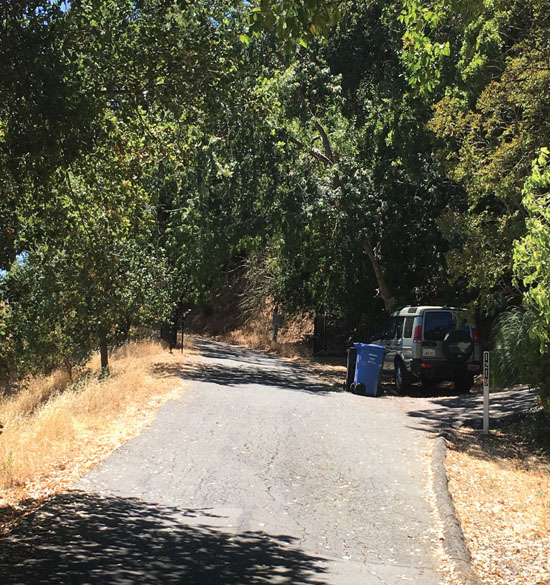
| ||||||
As their part of the settlement, the Wights agreed to dismiss all other aspects of the suit, but still need to comply with the 62 conditions of approval hammered out during the multiyear civic review process.
This is the latest action on the drawn-out saga that started with an application to build the home in 2011, and was denied by the city council in 2015.
When asked how the amount was decided, city attorney Mala Subramanian said it was a number that the city and the Wights could agree upon. "If it was a lower number we would be proceeding with litigation." She cautioned that less that 20 percent of appeals are successful, and recommended taking the settlement.
"It's the fiscally prudent action to take in light of the current circumstances," the city attorney said. The city has 30 days to make the payment, which includes the $200,000 settlement and $4,643 in costs.
The three city council members in attendance unanimously agreed with Subramanian, who recommended settling the suit with no admission of liability, and all the conditions of approval - including concessions from the property owners that include an open space easement and construction management plan - rather than exposing the city to substantial financial risk that could cost over a million dollars.
This move was spurred by a decision from Judge Craddick of Contra Costa Superior Court on June 2 - who reversed her original tentative ruling - in favor of the property owners, finding that the city's decision to deny their building application was not supported by substantial evidence.
The city council denied a Phase II permit on the 9,638-square-foot home with a 365-foot garden room on a prominent parcel due to excessive grading, noncompliance with design guidelines, concern over health hazards from the construction process, and more. When Phase II was denied, the property owners said they intended to sue.
Neighbors had come together to oppose the project over the years, chipping in for their own legal representation. They voiced their disapproval of the settlement at the Aug. 8 city council meeting. "You did the right thing in denying the project - don't back down now," said one gentleman, while others called the Wights "bullies" and commented that this settlement just invites more litigation. One young girl who lives just down the hill from the project urged the council to reconsider due to her asthma condition and pollution concerns.
David Bowie, the attorney representing the Wights, was clear that his clients were willing to pursue this matter as far as it would take, but also recognized that this is not an easy decision for the council to make.
Each of the three council members in attendance had different comments about the matter. Mayor Mark Mitchell said he voted against the project, and asked the city attorney why he should now vote in favor of the settlement. She explained that this option minimized the risk of significant expense to the city.
Concerned about the neighborhood, council member Mike Anderson said the impact of development is not something he takes lightly, and that an elaborate set of conditions to reduce the impact of the home will remain in place.
Council member Brandt Andersson called the judge's decision a "game changer" and sees a very narrow path to improve on the current settlement agreement that is just not worth the risk.
Reach the reporter at:
